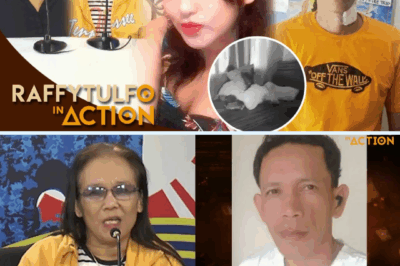Ely Buendia Speaks Out on Flood Control Controversy: A Call for Justice and Accountability
Filipino music icon Ely Buendia, famously known as the frontman of the legendary rock band Eraserheads, recently made headlines not for his music but for his vocal stand on a critical national issue: the ongoing flood control controversy in the Philippines. In a statement released on September 4, 2025, Buendia expressed deep concern over the alleged irregularities in government flood control projects that have affected countless communities across the country.
Buendia’s involvement in public discourse underscores the increasing role of celebrities in advocacy and civic engagement in the Philippines. Known for his thought-provoking lyrics and socially conscious perspectives, Buendia’s voice now resonates beyond music, highlighting issues of governance, public accountability, and social justice. His statement reflects a broader societal demand for transparency in government-funded projects and the urgent need to protect communities vulnerable to natural disasters.
The controversy centers around allegations that certain flood control projects, which were designed to mitigate seasonal flooding, were poorly managed and possibly tainted by corruption. Reports indicate that in some areas, construction has been substandard, leading to inadequate drainage and recurring floods during the rainy season. Many residents have voiced frustration, claiming that promises of safe infrastructure have yet to materialize. Buendia’s public statement gives these citizens a prominent platform, amplifying their concerns and calling for immediate attention from authorities.
In his statement, Buendia emphasized the human cost of these failures. “I hope there will be justice for the people,” he said, highlighting that the most affected are ordinary citizens who bear the brunt of poor planning and execution. This sentiment resonates with Filipinos who have historically suffered from natural calamities exacerbated by ineffective infrastructure. By highlighting the social impact of these projects, Buendia’s message serves as a reminder that public service should prioritize the welfare of the people over bureaucratic or financial gains.
The musician also stressed the importance of transparency and rigorous oversight. He urged authorities to conduct thorough investigations into the alleged mismanagement and ensure that those responsible are held accountable. Buendia’s call mirrors growing public demand for reforms in government practices, particularly in sectors that directly affect the safety and livelihoods of citizens. His stance aligns with broader anti-corruption campaigns in the country, which have gained momentum in recent years as citizens increasingly demand integrity and efficiency from public officials.
Buendia’s statement has generated significant attention on social media and in news outlets, sparking conversations about the role of public figures in civic advocacy. Many fans and supporters applauded his courage to speak out on an issue beyond the entertainment industry, seeing him as a responsible figure who uses his influence to raise awareness about pressing societal matters. Social media platforms have been flooded with discussions, with users sharing their own experiences of flood-related challenges and calling for similar accountability from other sectors of government.
Beyond advocacy, Buendia’s involvement highlights a cultural shift in the Philippines where artists are increasingly recognized as agents of change. His message resonates with the younger generation, inspiring a sense of civic duty and encouraging public discourse on accountability and governance. By bridging the gap between entertainment and activism, Buendia contributes to a growing movement of socially conscious artists who leverage their platforms for the greater good.
The controversy itself has broader implications for infrastructure development in the Philippines. Experts argue that recurring flood issues are symptomatic of deeper systemic problems, including inadequate planning, corruption, and lack of community involvement in decision-making. Buendia’s intervention sheds light on these structural challenges, urging both government agencies and citizens to take a proactive role in demanding quality public service. It also raises important questions about the allocation of public funds and the mechanisms in place to monitor and evaluate large-scale projects.
In addition to urging justice for affected communities, Buendia’s statement serves as a call to action for policymakers. He highlights the urgency of implementing effective flood control measures, particularly in urban areas prone to heavy rainfall and rapid urbanization. By drawing attention to this issue, he encourages collaborative efforts between government, civil society, and experts to ensure that flood control infrastructure is not only functional but also resilient and sustainable.
The musician’s statement also touches upon ethical responsibility. Buendia emphasizes that public officials must uphold moral integrity in their duties, as negligence can lead to devastating consequences for vulnerable populations. This perspective resonates with citizens who often feel that accountability is lacking in government projects. Buendia’s voice, therefore, is more than a celebrity opinion; it is a moral appeal for justice, integrity, and the protection of human life.
Public reactions to Buendia’s statement have been overwhelmingly supportive, with many lauding his courage to step into a politically sensitive issue. Some commentators note that his involvement could set a precedent for other artists and public figures to speak out on social issues, thereby increasing public engagement and fostering a culture of accountability. Others argue that celebrity intervention can help keep critical issues in the public eye, ensuring that authorities cannot ignore the needs of the people.
While Buendia’s statement does not provide specific policy recommendations, it underscores the necessity for immediate action. Analysts suggest that resolving the flood control controversy requires not only accountability for past mismanagement but also proactive measures to strengthen infrastructure, improve planning, and involve local communities in decision-making processes. By raising public awareness, Buendia contributes to a broader dialogue about governance and the importance of citizen participation in holding officials accountable.
In conclusion, Ely Buendia’s public remarks on the flood control controversy highlight the power of celebrity advocacy in contemporary Philippine society. His call for justice, transparency, and ethical governance resonates with citizens affected by recurring floods and systemic inefficiencies. Beyond music, Buendia has positioned himself as a socially conscious voice, leveraging his platform to shed light on critical national issues and inspire civic engagement. As debates continue and investigations unfold, Buendia’s intervention serves as a reminder that public figures can play a pivotal role in promoting justice, accountability, and the well-being of the communities they influence.
Ely Buendia speaks out on trending flood control projects controversy. | via @reymadeveza pic.twitter.com/3rSVE09bHR
— ABS-CBN News (@ABSCBNNews) September 4, 2025
News
Viveka Babajee at the 1994 Manila Film Festival: Scandal, switched envelopes, shocking winners—decades later, secrets still haunt showbiz!
Viveka Babajee and the 1994 Manila Film Festival Scandal: Revisiting a Controversial Chapter in Philippine Cinema The Manila Film Festival…
Shaira Diaz and EA Guzman’s secret Switzerland honeymoon sparks frenzy—romance, luxury, and surprises fans never saw coming!
Newlyweds Shaira Diaz and EA Guzman Embark on a Dream Honeymoon in Switzerland In a romantic twist that seems straight…
Suspect shocks nation with crime confession—was it guilt, pressure, or a darker secret lurking behind the admission?
Introduction In a startling turn of events, a suspect has come forward, confessing to a crime that has left the…
Parañaque condo residents horrified: sky-high electricity bills shock tenants—are hidden fees or appliances secretly draining your wallet?
Introduction Living in a condominium in Parañaque offers modern amenities and a convenient lifestyle. However, many residents are often taken…
Gian Magdangal and Lara Maigue are tying the knot this October—Philippine showbiz braces for the wedding of the year!
Gian Magdangal and Lara Maigue Set to Wed This October: A Celebration of Love and Music In an exciting announcement…
Filipino nurse assaulted in UK park; racial slurs, shocking attacks on her children spark outrage and viral social media storm.
Pinay Nurse Faces Assault and Racial Discrimination in UK Park: Community Outraged A Filipino nurse living in the United Kingdom…
End of content
No more pages to load












